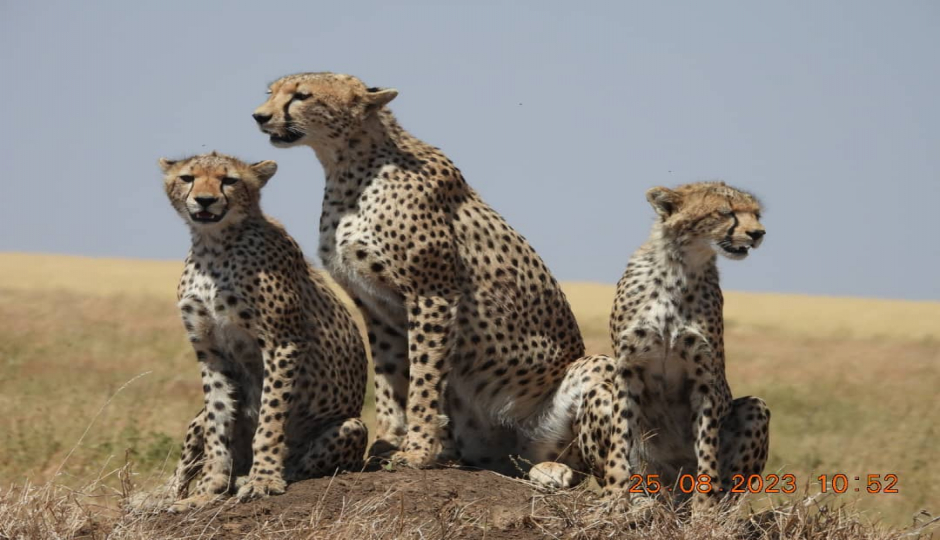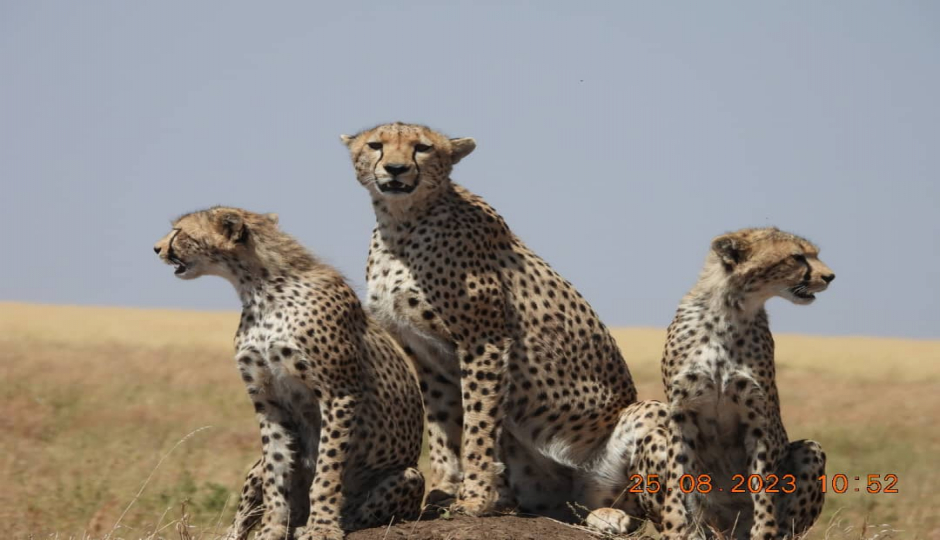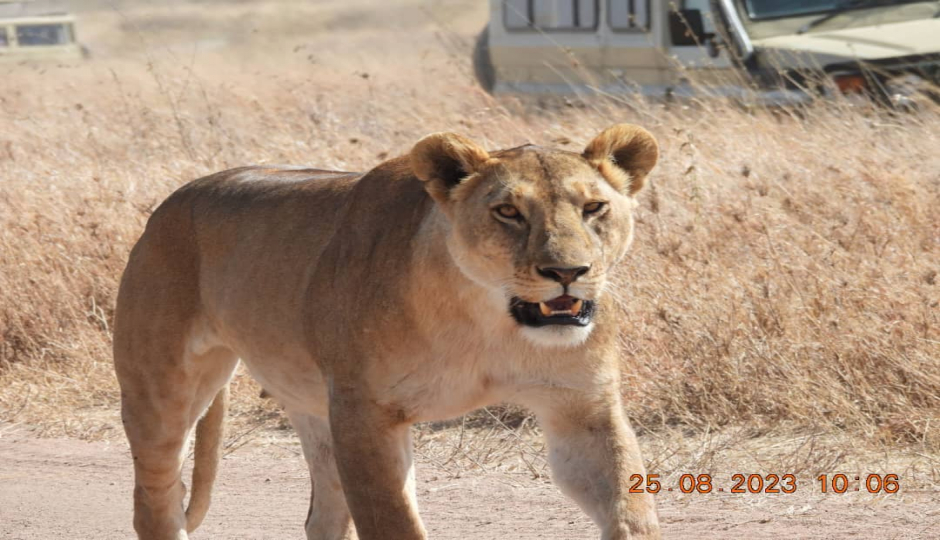Are Safaris Suitable for Children? A Comprehensive Guide for Families








When you think of a safari, you might imagine rugged landscapes, encounters with wild animals, and long days of exploration under the hot sun. While these experiences are thrilling for adults, many parents wonder whether safaris are suitable for children. The idea of taking your little ones into the wild, surrounded by potentially dangerous animals, can raise concerns. However, safaris can be a rewarding and unforgettable experience for children when planned with their specific needs and safety in mind. This blog will explore everything you need to know about taking children on a safari, including the benefits, safety considerations, recommended activities, and tips to ensure the whole family enjoys the adventure.
THE BENEFITS OF A SAFARI FOR CHILDREN
Safaris offer more than just excitement—they provide a unique, educational experience that can foster a deep love for nature and wildlife in children. Here’s why a safari can be beneficial for young travelers:
1. EDUCATIONAL OPPORTUNITIES
One of the most significant advantages of taking children on a safari is the incredible educational experience it provides. Safaris allow children to learn about animals, ecosystems, conservation efforts, and the importance of protecting the planet’s biodiversity. Instead of learning about elephants, lions, and giraffes from a textbook, they get to see these magnificent creatures in their natural habitat. This immersive experience can spark curiosity, teach valuable lessons about environmental stewardship, and leave a lasting impact.
2. CONNECTION WITH NATURE
In today’s digital world, children often spend a lot of time indoors or interacting with technology. A safari provides the perfect opportunity for kids to disconnect from screens and reconnect with the natural world. Being out in the wilderness allows children to appreciate the beauty and complexity of nature. This can help foster a sense of wonder, develop observational skills, and instill respect for the environment.
3. FAMILY BONDING
A safari is a shared adventure, and it’s a fantastic way for families to bond. Whether you’re marveling at a herd of zebras or sharing stories around a campfire under the stars, the memories you create on safari will be cherished for years to come. The excitement of spotting wildlife and exploring new environments creates a unique atmosphere for family connection.
4. LEARNING PATIENCE AND AWARENESS
Safaris often require patience as you wait for wildlife sightings or trek through different landscapes. For children, this can be a valuable lesson in patience, mindfulness, and the importance of staying calm. Moreover, they learn to become more observant and aware of their surroundings, developing skills that can benefit them in many aspects of life.
AGE CONSIDERATIONS FOR CHILDREN ON SAFARI
The suitability of a safari largely depends on the age of your children and the type of safari experience you choose. Here’s a breakdown of what you should consider for different age groups:
1. INFANTS AND TODDLERS (0–3 YEARS)
While it's technically possible to bring infants and toddlers on a safari, this age group may not fully appreciate the experience, and it can be challenging for parents. The long drives, extreme temperatures, and need for silence during wildlife sightings can be difficult for young children. Moreover, game reserves may have age restrictions for certain activities or lodges.
If you’re traveling with toddlers, it’s best to choose a family-friendly lodge or opt for a shorter safari experience where you can return to your accommodation for naps and playtime. Some lodges offer babysitting services, allowing parents to enjoy a longer game drive while their little ones rest.
2. PRESCHOOLERS (4–6 YEARS)
Children in this age group can start to appreciate the excitement of a safari, especially if you tailor the experience to their interests. However, patience can still be a challenge for preschoolers, so shorter game drives and age-appropriate activities are recommended. Many family-friendly lodges offer educational programs specifically designed for young children, where they can learn about wildlife in a fun, interactive way.
3. SCHOOL-AGE CHILDREN (7–12 YEARS)
This is one of the best age ranges for a safari experience. School-age children are often captivated by the idea of seeing wild animals up close and can engage more deeply with the educational aspects of the trip. They’ll likely be excited to learn about animal behavior, conservation efforts, and local cultures. At this age, children can handle longer game drives, walking safaris, and even participate in certain conservation activities like tracking animals or visiting wildlife rehabilitation centers.
4. TEENAGERS (13–18 YEARS)
Teenagers are usually enthusiastic about the idea of adventure and exploration, making them ideal safari companions. At this age, they can fully participate in all activities, including walking safaris, night drives, and cultural experiences. Teenagers may also benefit from the opportunity to learn about wildlife conservation and the environmental challenges facing various ecosystems, fostering a sense of global responsibility.
Safety Considerations for Children on Safari
Safety is naturally a top concern for any parent considering a safari with children. Here are some key safety tips to keep in mind:
1. CHOOSE A FAMILY-FRIENDLY LODGE OR TOUR OPERATOR
Not all safari lodges and camps are suitable for families with young children. Look for those that explicitly cater to families, with child-friendly amenities, shorter game drives, and flexible schedules. Many lodges have guides and staff trained to work with children, ensuring the safari is safe, fun, and educational for everyone.
2. FOLLOW PARK AND GUIDE INSTRUCTIONS
It’s essential to listen to your guide’s instructions and park rules, especially regarding safety around wildlife. Explain to your children the importance of staying inside the vehicle, remaining quiet during animal sightings, and not feeding or touching any animals. Safaris are generally safe as long as all safety protocols are followed.
3. AGE RESTRICTIONS FOR CERTAIN ACTIVITIES
Some safari activities, such as walking safaris or night drives, may have age restrictions due to the increased risk of encountering dangerous animals on foot or in low visibility. Be sure to check age requirements before planning your activities.
4. HEALTH CONSIDERATIONS
Before embarking on a safari, consult your doctor about any vaccinations or medications needed for travel to Africa. Malaria is a concern in certain regions, so you may need to take preventive measures such as antimalarial medication and using insect repellent. Additionally, ensure you have travel insurance that covers medical emergencies.
5. PACK SMART
Packing for a safari with children requires a bit of extra preparation. Along with the usual essentials like sunscreen, hats, and comfortable clothing, make sure to bring any medications, snacks, and entertainment (such as books or games) for downtime. A pair of binoculars can also be fun for children, allowing them to spot animals from afar.
ACTIVITIES FOR CHILDREN ON SAFARI
While game drives are the most popular safari activity, there are many other ways to keep children engaged and entertained throughout the trip. Here are some child-friendly activities that can enhance your family’s safari experience:
1. JUNIOR RANGER PROGRAMS
Many family-friendly lodges offer junior ranger programs where children can learn about the environment, track animals, and discover how to identify wildlife by their footprints and droppings. These programs often culminate in a “junior ranger” certificate, which adds a sense of accomplishment for young participants.
2. GUIDED NATURE WALKS
Some lodges offer guided nature walks tailored to children. These walks focus on smaller animals, plants, and insects that children might find fascinating. They also provide an opportunity to explore the African wilderness in a safe, controlled environment.
3. CULTURAL VISITS
Visiting local communities or participating in cultural activities can be an enriching experience for children. They can learn about different ways of life, try local foods, and even learn some traditional crafts or dances.
4. WILDLIFE CONSERVATION ACTIVITIES
Older children and teenagers may enjoy participating in wildlife conservation efforts, such as helping with animal tracking, visiting conservation centers, or learning about anti-poaching efforts. These activities can instill a sense of responsibility and deepen their understanding of the challenges facing wildlife.
5. PHOTOGRAPHY
Give your child a simple camera or a smartphone, and they’ll love capturing their own wildlife photos. This not only keeps them engaged but also encourages them to observe animals closely and think creatively.
Best Safari Destinations for Families with Children
Some safari destinations are more family-friendly than others. Below are a few destinations that offer great experiences for families traveling with children?
1. TANZANIA
Tanzania is an excellent safari destination for families, offering incredible wildlife experiences and a variety of child-friendly lodges. The Serengeti, Ngorongoro Crater, and Tarangire National Park are particularly well-suited for family safaris. Tanzania also has a range of luxury and budget-friendly accommodations that cater to families, ensuring both safety and comfort.
2. SOUTH AFRICA
South Africa is one of the most accessible safari destinations for families. Many private game reserves in South Africa have special activities for children, and some lodges even offer babysitting services. The malaria-free reserves in the Eastern Cape are ideal for families with young children.
3. KENYA
Kenya’s Maasai Mara is another fantastic family safari destination, particularly during the Great Migration. Some lodges in Kenya offer tailored children’s programs and activities, and you can combine your safari with a beach holiday on the Kenyan coast.
FINAL THOUGHTS: PLANNING A FAMILY SAFARI
Safaris can absolutely be suitable for children, provided that you plan with care and choose a destination and itinerary that cater to your family’s needs. By selecting a family-friendly lodge, considering age-appropriate activities, and keeping safety top of mind, you can ensure that your children have a fun, educational, and safe safari adventure. Safaris are an extraordinary way for children to experience the natural world, learn about wildlife conservation, and create lasting memories with their families. If you're considering a safari for your family please feel free to contact us, we will organize and help you book the perfect safari for your lovely family.






Which is the Most Scenic Kilimanjaro Climbing Route?
To book your adventure, simply send us an email detailing your desired experience—whether it's climbing Mount Kilimanjaro, going on a safari, or enjoying the Zanzibar beach.
We'll promptly respond with all the information you need to finalize your plans. Plus, we offer the convenience of online payment to make the process even smoother.
View Packages